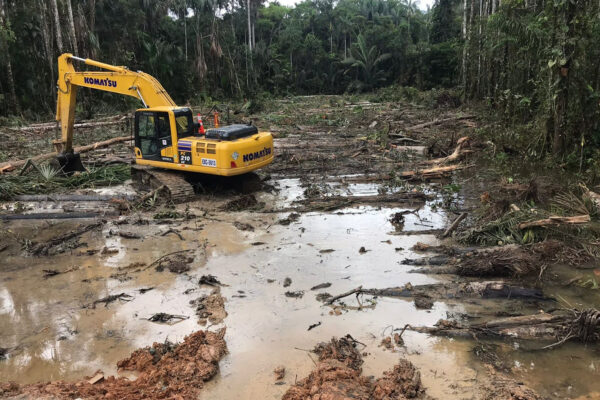Quito, Ecuador – Facing escalating resistance by some Latin American countries for a hemisphere-wide free-trade zone, U.S. trade officials hope to shore up support from allies in the region.
U.S. officials will sit down Friday with trade ministers and representatives from 34 nations to advance plans to create the world’s largest free-trade zone, known as the Free Trade Area of the Americas, or FTAA.
The agreement aims to establish a single market stretching from Alaska to Argentina by 2005, and officials are hoping the meeting in Quito will help establish a timeframe to begin lowering trade tariffs among the countries.
The one-day talks will be held under heightened security in Quito as authorities brace for demonstrations by indigenous, labor and leftist groups from across the region. Some 5,000 police officers are to be deployed. On Thursday, thousands of protesters marched in Quito. Police fired tear gas to disperse demonstrators who tried to get past some 500 policemen blocking access to a hotel where business leaders were meeting. Opposition to the proposed pan-American trade bloc has grown steadily in a region battered by economic and political crises, and some say talk of concluding a treaty this decade is overly ambitious.
Uncertainty over the trade pact’s future has been further clouded by the recent election of Luiz Inacio Lula da Silva as the first leftist president in 40 years in Brazil, the region’s largest economy.
During his presidential campaign, Silva branded U.S. President George W. Bush (news – web sites)’s top trade priority for Latin America as “an annexation of Latin America to the United States.”
Other regional leaders have voiced similar concerns, warning such a zone would largely benefit U.S. companies, who some worry will use market access at the expense of Latin American competition. The trade group’s supporters insist it will help alleviate poverty and improve competitiveness at time when many countries – including Argentina, Paraguay, Venezuela and Uruguay – are mired in deep economic crises.
Riordan Roett, director of the Western Hemisphere Program at The School of Advanced International Studies of the Johns Hopkins University, said major obstacles threaten the talks.
He said at issue now are differences between the United States and Brazil. “Until the U.S. and Brazil come to a political understanding, there is no future for the FTAA,” he said. “There is a lot of political discussion remaining to be done before any technical questions can even be brought to the table.”
Brazil’s president-elect has publicly expressed reservations about the trade area, while also demanding the United States open its markets to more Brazilian (news – web sites) exports such as steel and oranges. Similar complaints have been voiced by leading opponents of the trade pact organizing street demonstrations for Friday. Organizers of protest marches which set off on Monday from the cities of Guayaquil, Tulcan and Loja said they hoped thousands would join them in a demonstration to coincide with the meeting.
“We will fight for the dignity of the people – we denounce that the FTAA is a vehicle for North American multinationals,” said Miriam Cabezas, the leader of a human rights group marching from Tulcan, 150 kilometers (90 miles) north of the Ecuadoran capital.
Anti-free trade advocates are also planning to stage their own conference, dubbed “Another America is Possible.” They charge that the proposed pan-American trade zone would cripple local industries and complain the United States has so far been reluctant to open markets to their products.
“What we’ve done until now is cede our national markets in exchange for absolutely nothing,” said Evo Morales, a Bolivan congressman and leader of the country’s coca farmers. “We can’t export anything (to the United States) and they export everything to us.”
Should the talks stall, U.S. Trade Representative Robert Zoelick has said he would seek to establish trade deals with those countries that support an agreement. The United States is looking to strike a free trade agreement with Chile by the end of the year and start negotiations with five Central American countries.
According to U.S. officials, a number of other nations in the hemisphere – including the Dominican Republic, Bolivia, Colombia, Peru and Uruguay – have expressed interest in separate deals with the United States.













